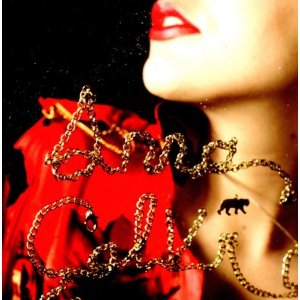In 1928, Virginia Woolf delivered a lecture at Cambridge University about female writers and fiction. Amongst the major obstacles hindering them – patriarchy, a forced domesticated existence and a lack of financial independence being the most prominent – she identified a need to throw off the shackles of the past. "I have said that a woman writing thinks back through her mothers," she declared, believing Samuel Coleridge’s vision of the great androgynous mind the state most conducive to creativity.
Were she alive in 2011, one imagines that Woolf would still be agitating – not because her ideals haven’t been met, but because of the dogged persistence with which all manner of female artists are chained to their forbearers. Take Anna Calvi, for example: the half-English, half-Italian singer whose self-titled debut album showcases finger-picking skills worthy of Django Reinhardt and an Ennio Morricone-like ear for sweeping cinematic scores, and yet is still laden with those blessed, blasted comparisons to PJ Harvey. It’s baffling, because despite some tangential links between the two – most obviously, Calvi’s co-producer Rob Ellis moonlights as Harvey’s drummer – they’re tenuous at best. And there’s certainly little common ground to be found in-between the bruised ruminations of Let England Shake and the swaggering, smouldering Anna Calvi.
Instead, the record that Anna Calvi recalls most strongly – in tone rather than aesthetic – is Two Dancers by fellow Domino cohorts Wild Beasts. Like the Kendal troupe, Calvi has a fine knack for combining the beautiful and the bawdy, and milking romance from the most steamy of moonlit assignations. There’s something less playfully rambunctious about her delivery, and less emphasis on arched eyebrows and sly innuendo, but the intent is no less seductive. On ‘No More Words’, she breathlessly implores a lover to "Hold me down, and hold me close tonight" as a sultry guitar lick reminiscent of Television’s Marquee Moon plays in the background, while on ‘I’ll Be Your Man’ she resembles a singer in some dimly lit cabaret, huskily promising to "be your lover in the night". Yet as lascivious as it may sound, there’s something elegant about Anna Calvi, too; she sounds more like a heroine from a classic black-and-white flick than a rowdy dame on ‘First We Kiss’ as she sings, amidst a backdrop of strings, "First we kiss… and then we lock the door".
Just as Luke Turner recognised that all of Wild Beast’s hooting and howling would ring hollow without the tunes to match it, too, so Calvi’s roving spirit is given substance by her deft hand for instrumentation. There’s a filmic feel that runs throughout Anna Calvi_, as showcased by opening track ‘Rider To The Sea’, in which her voice is only heard for the briefest of moments while the foreground is dominated by windswept pearls of guitar and gently crashing percussion. When her vocal is dropped into the mix, there’s something chameleonic about it, effortlessly switching guises between Bond-movie femme fatale on the rich and brassy ‘Suzanne And I’ and soul-searching loner on sparse centrepiece ‘The Devil’. And fittingly, it ends with ‘Love Won’t Be Leaving’: a fiercely triumphant close in which Calvi invites a paramour to "Draw my name in the sand, and hope you’ll find me", remaining defiant as the final curtain comes down.
There are moments when the sparkle fades, of course – ironically, the plodding ‘Desire’ is as likely to serve as appropriate accompaniment to the throes of passion as an old re-run of Top Gear – but Anna Calvi still oozes sophistication. Ignore the baseless comparisons: right now, by proving it’s possible to be class rather than crass without being any less enticing, Calvi is in a league of her own.


